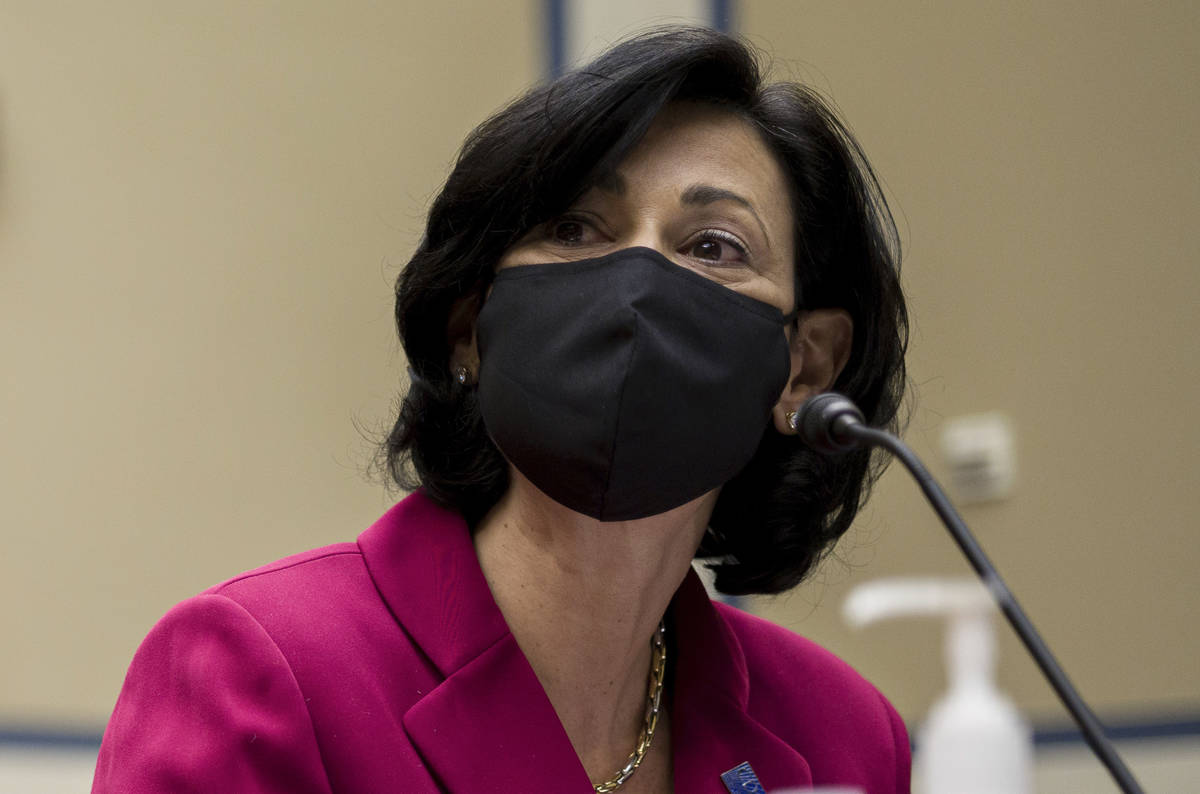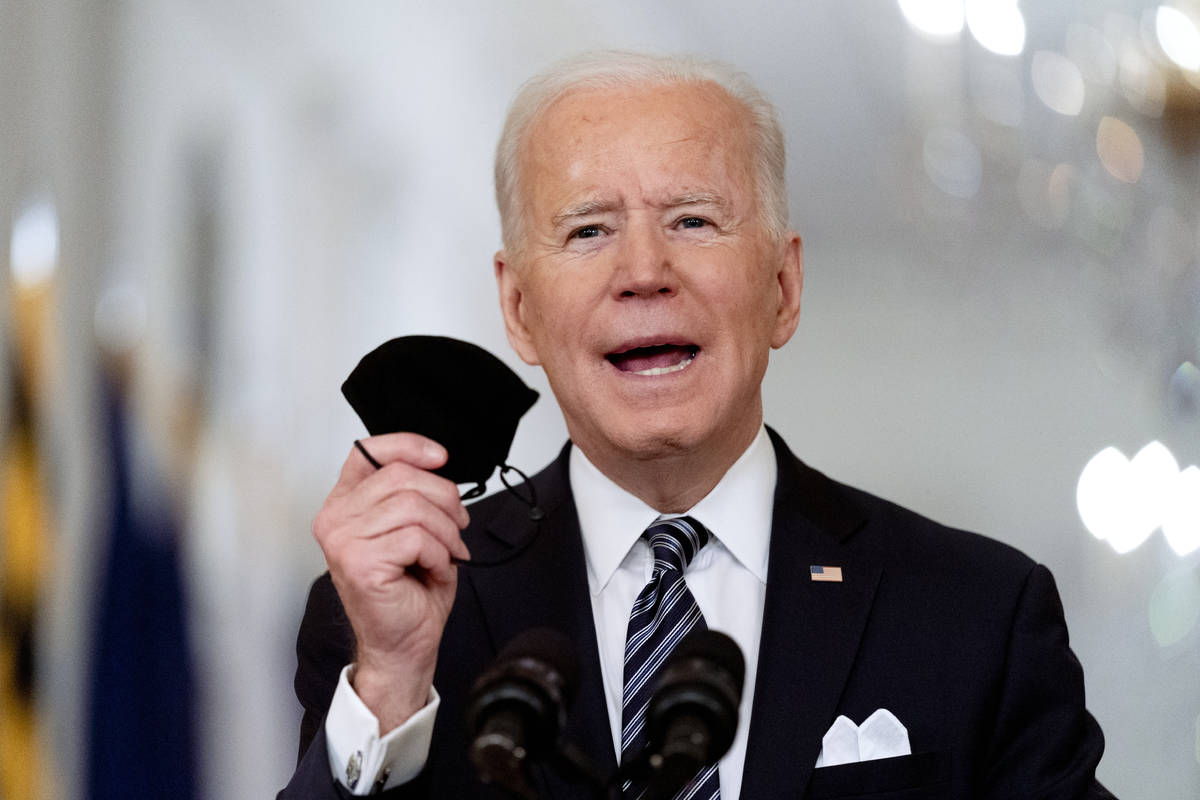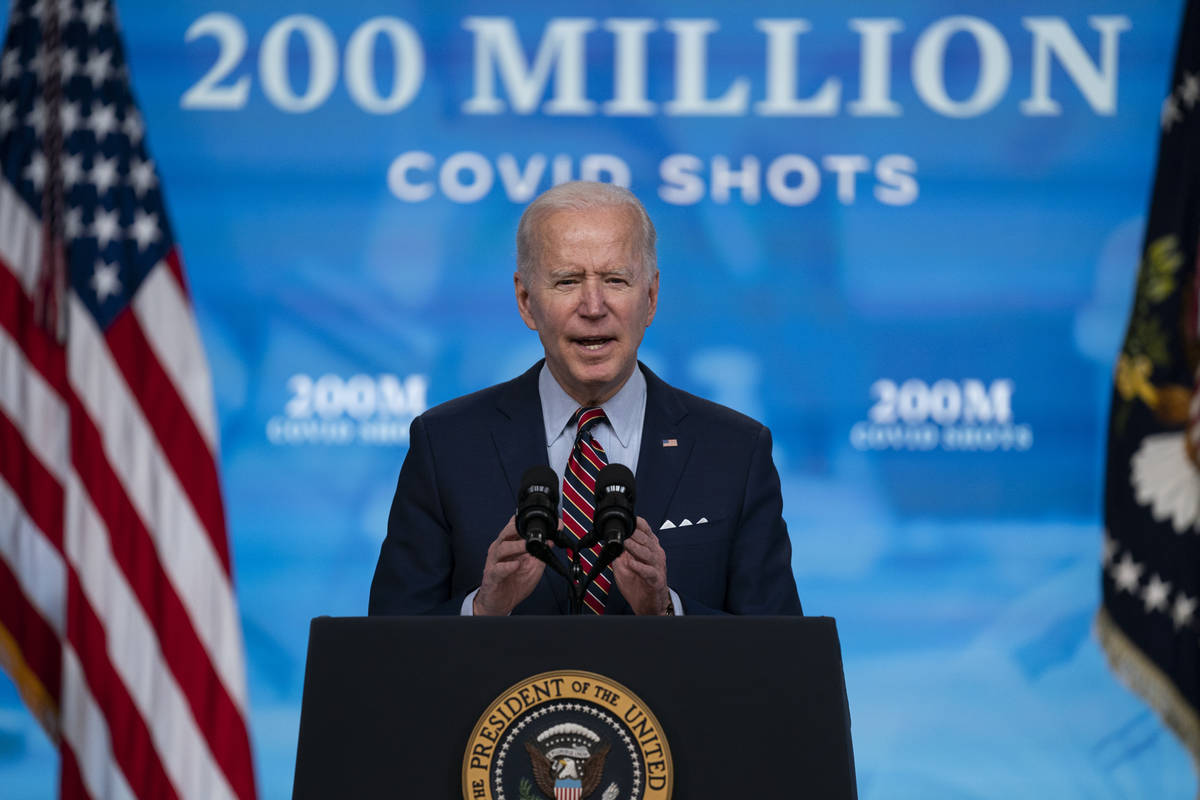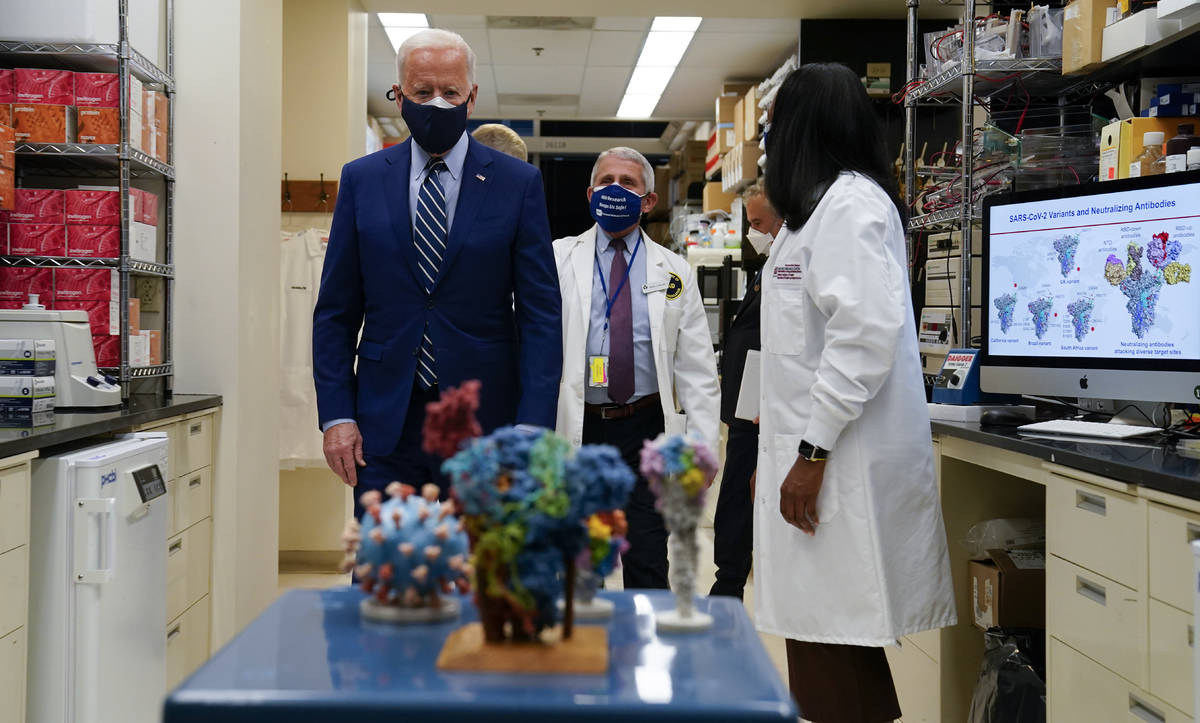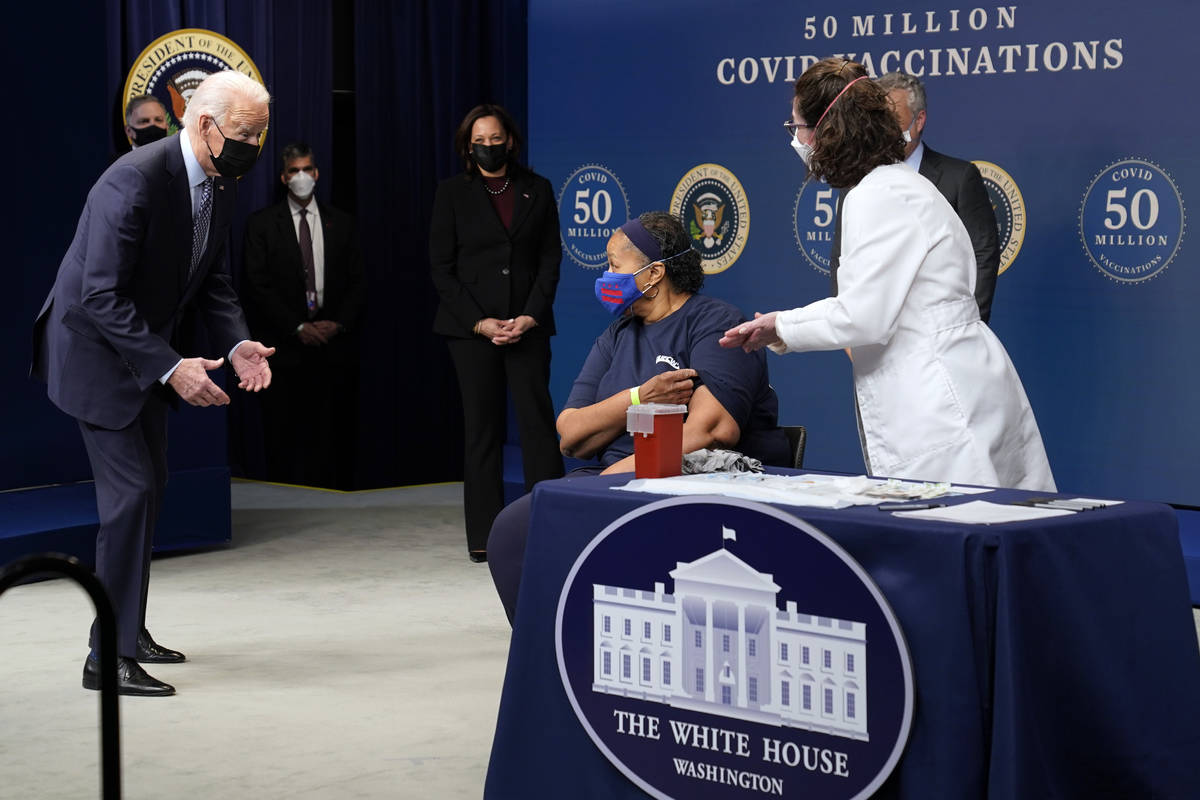CDC eases guidelines on wearing masks outside
NEW YORK — The Centers for Disease Control and Prevention eased its guidelines Tuesday on the wearing of masks outdoors, saying fully vaccinated Americans don’t need to cover their faces anymore unless they are in a big crowd of strangers.
And those who are unvaccinated can go outside without masks in some situations, too.
The new guidance represents another carefully calibrated step on the road back to normal from the coronavirus outbreak that has killed over 570,000 people in U.S.
For most of the past year, the CDC had been advising Americans to wear masks outdoors if they are within 6 feet of one another.
“Today, I hope, is a day when we can take another step back to the normalcy of before,” CDC Director Dr. Rochelle Walensky said. “Over the past year, we have spent a lot of time telling Americans what you can’t do. Today, I am going to tell you some of the things you can do, if you are fully vaccinated.”
The change comes as more than half of U.S. adults have gotten at least one dose of coronavirus vaccine, and more than a third have been fully vaccinated.
Walensky said the decision was driven by rising vaccination numbers; declines in COVID-19 cases, hospitalizations and deaths; and research showing that less than 10% of documented instances of transmission of the virus happened outdoors.
Dr. Mike Saag, an infectious disease expert at the University of Alabama at Birmingham, welcomed the change in guidance.
“It’s the return of freedom,” Saag said. “It’s the return of us being able to do normal activities again. We’re not there yet, but we’re on the exit ramp. And that’s a beautiful thing.”
More people need to be vaccinated, and concerns persist about variants and other possible shifts in the epidemic. But Saag said the new guidance is a sensible reward following the development and distribution of effective vaccines and about 140 million Americans stepping forward to get their shots.
The CDC, which has been cautious in its guidance during the crisis, essentially endorsed what many Americans have already been doing over the past several weeks.
The CDC says that fully vaccinated or not, people do not have to wear masks outdoors when they walk, bike or run alone or with members of their household. They can also go maskless in small outdoor gatherings with fully vaccinated people.
But from there, the CDC has differing guidance for people who are fully vaccinated and those who are not.
Unvaccinated people — defined by the CDC as those who have yet to receive both doses of the Pfizer or Moderna vaccine or the one-shot Johnson & Johnson formula — should wear masks at outdoor gatherings that include other unvaccinated people. They also should keep using masks at outdoor restaurants.
Fully vaccinated people do not need to cover up in those situations, the CDC says.
However, everyone should keep wearing masks at crowded outdoor events such as concerts or sporting events, the CDC says.
And the agency continues to recommend masks at indoor public places, such as hair salons, restaurants, shopping centers, gyms, museums and movie theaters, saying that is still the safer course even for vaccinated people.
“Right now it’s very hard to tease apart who is vaccinated,” Walensky explained.
She said the CDC guidance should be a model for states in setting their mask-wearing requirements.
Dr. Babak Javid, a physician-scientist at the University of California, San Francisco, said the new CDC guidance is sensible.
“In the vast majority of outdoor scenarios, transmission risk is low,” Javid said.
Javid has favored outdoor mask-wearing requirements because he believes they increase indoor mask-wearing, but he said Americans can understand the relative risks and make good decisions.
He added: “I’m looking forward to mask-free existence.”
“The timing is right because we now have a fair amount of data about the scenarios where transmission occurs,” said Mercedes Carnethon, a professor and vice chair of preventive medicine at Northwestern University’s Feinberg School of Medicine in Chicago.
What’s more, she said, “the additional freedoms may serve as a motivator” for people to get vaccinated.



